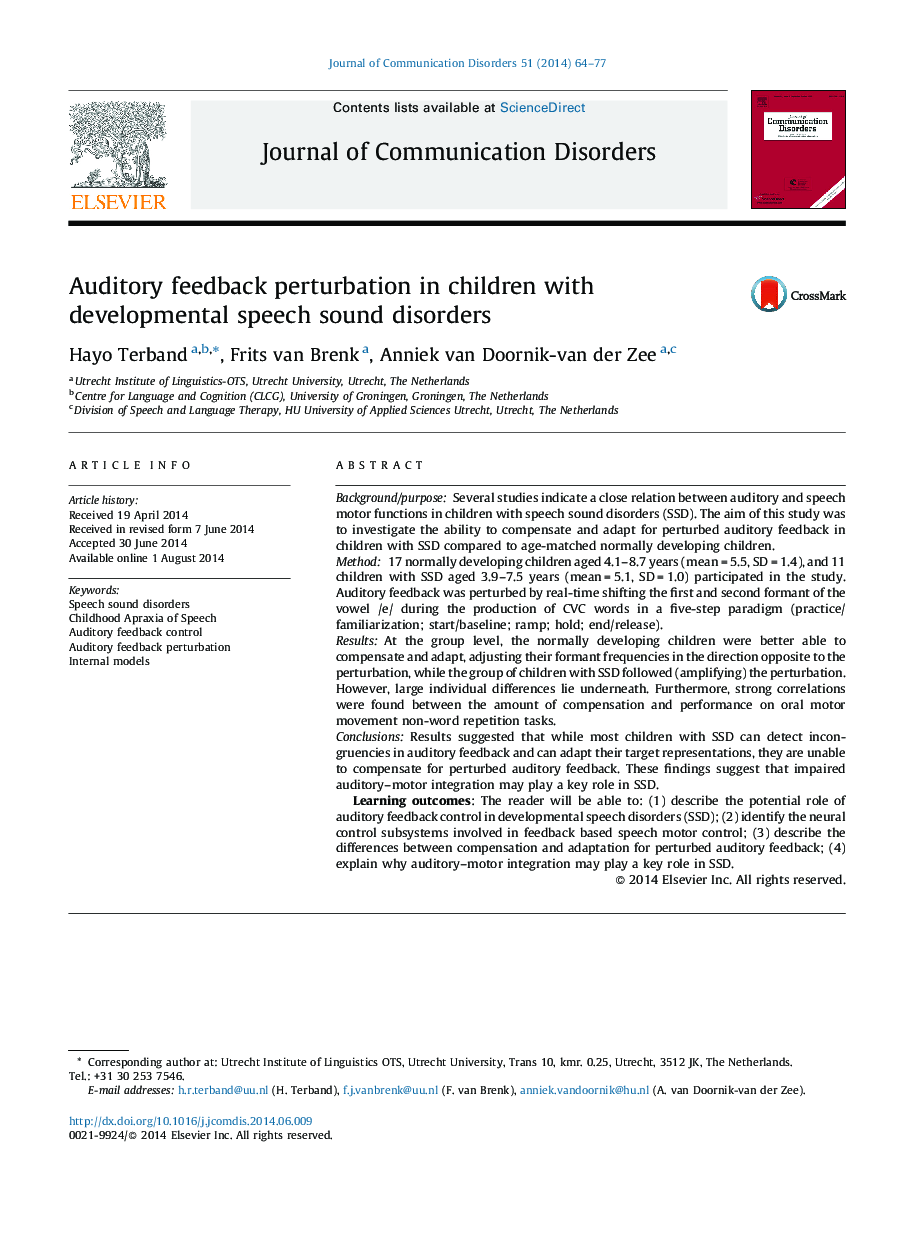| کد مقاله | کد نشریه | سال انتشار | مقاله انگلیسی | نسخه تمام متن |
|---|---|---|---|---|
| 910772 | 1473105 | 2014 | 14 صفحه PDF | دانلود رایگان |
• We investigated the ability to compensate and adapt for perturbed auditory feedback in children with SSD compared to age-matched normally developing children.
• Normally developing children were able to compensate and adapt, adjusting their formant frequencies in the direction opposite to the perturbation while children with SSD followed (amplifying) the perturbation.
• Strong correlations were found between the amount of compensation and performance on oral motor movement and non-word repetition tasks.
• Results suggest that while most children with SSD can detect incongruencies in auditory feedback and can adapt their target representations, they are unable to compensate for perturbed auditory feedback.
• Impaired auditory-motor integration may play a key role in SSD.
Background/purposeSeveral studies indicate a close relation between auditory and speech motor functions in children with speech sound disorders (SSD). The aim of this study was to investigate the ability to compensate and adapt for perturbed auditory feedback in children with SSD compared to age-matched normally developing children.Method17 normally developing children aged 4.1–8.7 years (mean = 5.5, SD = 1.4), and 11 children with SSD aged 3.9–7.5 years (mean = 5.1, SD = 1.0) participated in the study. Auditory feedback was perturbed by real-time shifting the first and second formant of the vowel /e/ during the production of CVC words in a five-step paradigm (practice/familiarization; start/baseline; ramp; hold; end/release).ResultsAt the group level, the normally developing children were better able to compensate and adapt, adjusting their formant frequencies in the direction opposite to the perturbation, while the group of children with SSD followed (amplifying) the perturbation. However, large individual differences lie underneath. Furthermore, strong correlations were found between the amount of compensation and performance on oral motor movement non-word repetition tasks.ConclusionsResults suggested that while most children with SSD can detect incongruencies in auditory feedback and can adapt their target representations, they are unable to compensate for perturbed auditory feedback. These findings suggest that impaired auditory–motor integration may play a key role in SSD.Learning outcomes: The reader will be able to: (1) describe the potential role of auditory feedback control in developmental speech disorders (SSD); (2) identify the neural control subsystems involved in feedback based speech motor control; (3) describe the differences between compensation and adaptation for perturbed auditory feedback; (4) explain why auditory–motor integration may play a key role in SSD.
Journal: Journal of Communication Disorders - Volume 51, September–October 2014, Pages 64–77
